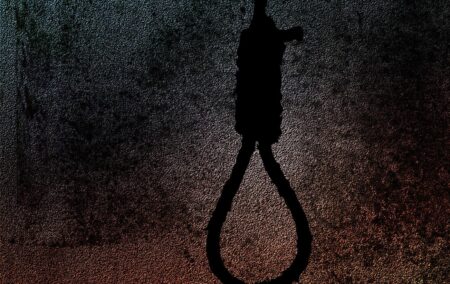South Africa has been through a horrific few weeks, but we must not give in to populist temptation and jettison that which makes a decent society.
This has been a tough few weeks for our country. We have witnessed scenes of violence and looting in some of our major cities as a vile nativist streak showed itself in South Africans engaging in pogroms against people from other parts of our continent. At the same time, violence against women has been brought to the forefront with the rape and murder of Uyinene Mrwetyana at the hands of a Post Office employee.
And this is not one of those times where what people perceive is out of step with reality. Crime in South Africa – including violent interpersonal crime – is on the increase. After peaking in the mid-1990s, crimes such as murder and assault generally saw a gradual decline. The murder rate (the number of murders per 100 000 people) was nearly 70 in the mid-1990s, but this had declined to 31 by the beginning of this decade. However, with the continuing breakdown in the capacity of the state to provide services, this rate began slowly to rise, reaching 36 in 2017/18. Other serious crimes show a similar trend (although, according to official police figures, the rate of rape has remained fairly static).
Coupled to this, there have been calls for the return of the death penalty and for bail being denied to men accused of rape and femicide (with many asking how it is someone like Luyanda Botha, the alleged killer of Uyinene, could have been employed by the Post Office despite his apparently having two previous convictions, for armed robbery and sexual assault, according to reports).
However, these are illiberal reactions to a problem, and a problem which will not be solved through retributive justice. I commented to my colleagues that it was quite interesting to see how many of those who would likely consider themselves progressive or even ‘woke’ become law-and-order authoritarians around certain issues. The fact that there are serious calls for the death penalty is one of these.
The scrapping of the death penalty was inevitable when South Africa became a democracy. The global trend has been towards abolition for some time – the only liberal democracy in the world which still regularly applies it is the United States, which, as we know, is an outlier on certain issues. But the fact is that the death penalty is barbaric and inhumane. Setting aside the truth that any justice system is fallible and that innocent people will die when mistakes are made, the State should not have the power to put people to death. There is much literature on the death penalty and it is clear that it is dehumanising and also often costs the state more than simply locking up someone for life. Although it is something many may find hard to acknowledge, even people who have committed the worst crimes in our society are still human beings, and still need to be treated as such. This is not to say that there should be no punishment – but that it should not be death.
Deterrence is also often cited as a reason why the death penalty should be brought back. If the thought of 20 years in an overcrowded South African jail, run by dangerous gangsters, is not enough to prevent you from committing a crime, then the death penalty will also not be a deterrent.
We have also seen calls for bail to be revoked for certain categories of crime, such as rape and femicide. However, a key principle in a liberal democracy is that of ‘innocent until proven guilty’. Denying people bail on the grounds simply of an accusation is not acceptable, and each case must be considered on its merits. Of course, if a person has been accused numerous times before or has previous convictions, then the possibility of denying bail is valid. But not giving bail to people simply because of the crime they are alleged to have committed is problematic and it is something we should consider carefully as a society before following such a path.
And now we come to the question of Luyanda Botha, the alleged killer of Uyinene. Many have asked how the Post Office could have hired a convicted criminal. The Economic Freedom Fighters (EFF), who never miss an opportunity to jump on a populist bandwagon, are also reportedly considering suing the Post Office and the minister of communications for hiring Botha. Now this is all well and good, but a key pillar of punishment in a democracy is rehabilitation. What Botha did is heinous and he must be punished for it, but was the Post Office wrong to employ him? Should every person who has ever committed a crime never be employed again? What do we do with former convicts who have paid their debt to society? Do we leave them unemployed and let them rot in the streets?
It is clear that the system failed both Botha and Uyinene. People like Botha, once they have paid their debt to society, need to be reintegrated into society, and this means providing them with employment where possible. Systems need to be put in place so that people like Botha can escape their past and not become recidivists but individuals who contribute to society.
Our country has been through a horrific few weeks, but we must not give in to populist temptation and jettison that which makes a decent society – not putting people to death, giving the benefit of the doubt to those accused of crimes, and giving people who have made mistakes a second chance.

